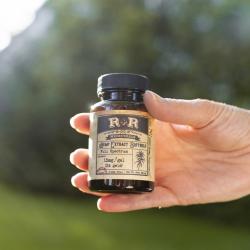Is Cannabis the Ultimate Solution for Anxiety Relief?
Anxiety disorders represent one of the most prevalent mental health issues worldwide, affecting millions of individuals. The quest for effective remedies has led to various treatments, including pharmaceuticals, therapy, and lifestyle adjustments. In recent years, cannabis has emerged as a potential alternative for managing symptoms of anxiety, but is it the ultimate solution?
This article delves into the efficacy, safety, and considerations associated with using cannabis for anxiety relief.
Understanding Cannabis and Its Components
Cannabis is rich in numerous compounds, but THC (tetrahydrocannabinol) and CBD (cannabidiol) are the most significant due to their distinct effects on the human body. THC is the primary psychoactive component responsible for the "high" associated with cannabis use. In contrast, CBD is non-psychoactive and is valued for its potential therapeutic benefits, particularly in mood regulation and anxiety relief, without causing intoxication.
These compounds interact with the body's endocannabinoid system, a complex network of receptors regulating various physiological processes, including pain, memory, mood, and appetite. The interaction of THC and CBD with this system influences neurotransmitter release, which can stabilize mood and alleviate symptoms of anxiety. This plays a crucial role in potential treatments for various mental health conditions.
The Role of Cannabis in Anxiety Management
Research into cannabis as a treatment for anxiety is evolving. It is believed that CBD can help reduce anxiety levels in individuals facing conditions such as generalized anxiety disorder (GAD), social anxiety disorder, and post-traumatic stress disorder (PTSD).
Moreover, it is said that CBD’s interaction with the body’s endocannabinoid system contributes to its potential to moderate stress responses and enhance mood.
However, the relationship between cannabis and anxiety is complex. THC, while beneficial for some, may exacerbate anxiety in others. This paradox highlights the importance of understanding the specific components and their effects on individual physiology.
Importance of Safe Cannabis Use
When exploring the use of cannabis for anxiety relief, prioritizing safe cannabis use is essential. The impact of cannabis on anxiety can vary significantly based on dosage, the specific strain chosen, and the method of consumption. THC, the psychoactive component of cannabis, demonstrates dose-dependent effects; lower doses may reduce anxiety symptoms, while higher doses could exacerbate them.
Consequently, it is advisable to begin treatment with minimal doses and incrementally increase them as needed, carefully monitoring the effects. This approach can help maximize therapeutic benefits while minimizing potential adverse reactions, ensuring that individuals can safely and effectively use cannabis to manage their anxiety.
However, for those considering cannabis for anxiety relief, it’s best to check out reliable websites and online resources to gain more insights about safe cannabis use.
Personalized Medicine Approach
The concept of personalized medicine is particularly relevant in the use of cannabis for anxiety due to the wide variation in individual responses. This approach tailors treatment plans specifically to an individual’s unique genetic profile, lifestyle, health conditions, and prior experiences with cannabis. By considering these factors, healthcare providers can devise a more effective regimen that targets anxiety symptoms and aligns with the patient's overall health needs.
Personalized medicine in cannabis use aims to fine-tune dosages, select appropriate strains, and choose the best method of consumption to maximize therapeutic benefits while minimizing potential side effects or risks.
Legal and Social Considerations
The legal landscape of cannabis use significantly affects its accessibility and research. In jurisdictions where cannabis is legal, users must navigate a complex framework of laws that govern its purchase, possession, and use. These regulations can vary drastically from one region to another, complicating consistent access and scientific study.
Moreover, social stigma and misconceptions continue to surround cannabis use, often influencing public opinion and policy. This stigma can deter users from seeking cannabis as a treatment option and can skew public and medical professional perceptions, potentially hindering its acceptance and integration into mainstream medicine.
Alternative Therapies and Comparisons
Cannabis is just one of several options available for the treatment of anxiety. Alternative therapies, such as cognitive behavioral therapy (CBT), various forms of medication, and lifestyle modifications, have also proven effective. Many individuals find that a multifaceted approach, which incorporates a combination of these therapies, offers the most comprehensive relief from anxiety symptoms.
Comparing the efficacy of these treatments is essential for understanding how cannabis can fit into a broader therapeutic context and for determining when it might be the most appropriate choice or when it should be combined with other treatments for optimal outcomes.
Future Research and Directions
The trajectory of cannabis research is poised to expand, with the potential to offer more definitive insights into its efficacy for anxiety relief. Future studies are expected to delve deeper into which components of cannabis are most effective, appropriate dosages, and long-term impacts.
As legal barriers diminish and societal perceptions evolve, the volume and scope of research will likely increase, allowing for more detailed and widespread studies. These advancements will enhance understanding of cannabis's role in treating anxiety. They could also open doors to its use for other medical conditions, establishing more precise guidelines for its therapeutic use.
Conclusion
Cannabis may offer relief for some individuals struggling with anxiety, but it is not a universal cure-all. Its effectiveness depends on many factors, including the individual's biological makeup, the cannabis strain used, and the consumption method. Responsible use, guided by medical advice and adherence to legal guidelines, is essential to ensure safety and efficacy.
For those considering cannabis as a treatment option for anxiety, it's crucial to consult with healthcare professionals and consider all available evidence. While promising, cannabis is just one part of a broader spectrum of potential treatments available for anxiety relief.
More to Read:
Previous Posts:






